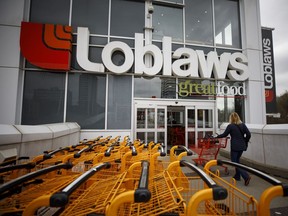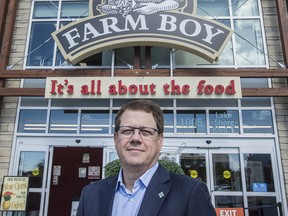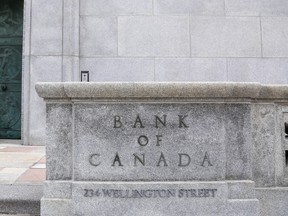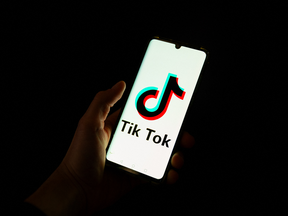Roundtable marks a new phase in a protracted campaign to establish a code of conduct for the food industry
Article content
Executives from Canada’s largest food companies and retail chains will convene this month to hash out new rules that could end years of squabbling in the grocery business, according to a report sent to government this week.
Advertisement 2
Article content
The roundtable, which will include representatives from Loblaw Companies Ltd., Sobeys’ parent Empire Co. Ltd., PepsiCo Inc. and Unilever Plc, marks a new phase in a protracted campaign to establish a code of conduct for the food industry. Advocates say a code would end the historic power imbalance between big grocers and their suppliers, and even help tamp down rising food inflation. But the process of writing those rules continues to get longer, with negotiations missing another deadline this month.
Canada’s federal, provincial and territorial agriculture ministers have been closely following rising tensions between grocers and suppliers throughout the pandemic — the latest of which has been the standoff between Loblaw and PepsiCo over the price of chips.
Advertisement 3
Article content
Last summer, the ministers gave the industry an ultimatum: call a truce and draft a code yourselves, or government will do it for you. The ministers appointed a mediator to facilitate talks between 10 trade associations representing grocers and suppliers, hoping for a solution by the end of 2021. Then, in November, the ministers set a new deadline, asking for the 10 groups to come up with a “concrete proposal” by March.
We feel confident that the big picture is coming together
report
This week, the trade associations went back to the ministers with a progress report, not a proposal. The talks have produced “significant progress” but there are still disagreements, the report said. “We feel confident that the big picture is coming together.”
One of the industry reps involved in the discussions said the deadline wasn’t realistic.
Advertisement 4
Article content
“The expectations of government were by March we have it done. But quite honestly, they had no understanding of the complexity of what we’re trying to deal with, or the magnitude of it,” said Michael Graydon, CEO of Food, Health and Consumer Products of Canada. “We’re better off to take the time.”
The trade associations agreed that the next step is to get professionals from the field to sit down and “tackle the major subjects,” including what sorts of products and dealings should be covered by a code. The discussions so far appear to have made headway on a key issue, with all lobby groups involved in agreement that the code should be mandatory and enforceable, though it’s still not clear how it will be enforced.
“It is too early to say definitively that a regulatory or non-regulatory route is required,” the progress report said.
Advertisement 5
Article content
As of this week, the so-called “cross-industry working group” involves senior leaders from food companies behind some of the biggest brands in the world, including PepsiCo, Unilever, and Danone S.A. Canada’s top three grocers, Loblaw, Sobeys’ parent Empire and Metro Inc., will also be involved, along with the Western Canadian grocer Save-On-Foods. More than three dozen people are participating in total, including Cara Keating, president of PepsiCo Foods Canada, and Gary Wade, president of Unilever Canada, according to a recent roster obtained by the Financial Post.
A mediation firm and a “neutral competition lawyer” will also be involved.

Retail Council of Canada, which represents the grocers, expects to have “strong and capable representation” at the working group meetings, spokesperson Michelle Wasylyshen said in an email.
Advertisement 6
Article content
Graydon, at FHCP, said the executives will bring an on-the-ground perspective, which has been lacking so far in negotiations between industry lobbyists.
“I think when they actually get down to it, they’re going to look each other in the eye and say, ‘Yeah we can do that,’” Graydon said. “I’m hopeful that we can get to a point in the next month or two that we can get everything resolved, maybe have a semblance of a draft code…. I don’t think anybody wants this to last a long time. They’ve all got full-time jobs.”
The meetings are set to start this month, the progress report said.
André Lamontagne — Quebec’s agriculture minister, who has been one of the leaders of a cross-governmental probe into the grocery business — is satisfied with the progress so far, his office said on Thursday.
Advertisement 7
Article content
“This important issue is progressing well,” spokesperson Alexandra Houde said in an email.
Federal Agriculture Minister Marie-Claude Bibeau is reviewing the progress report and recognizes “that the issues at stake are very complex,” her office said in a statement.
-

Frito-Lay vs. Loblaw fight underscores importance of grocery code of conduct negotiations, leaders say
-

Talks on grocery code to extend into new year, but legislators say it’s progress
-

Empire eyes year-end for a grocery code of conduct, but others are skeptical
-

Retail Council joins call for code of grocery conduct, paving way for new rules on the big chains
For years, food producers have complained that a handful of dominant grocery chains are taking advantage of their position in Canada’s consolidated food retail market to foist fees and fines on their suppliers. Suppliers say they have no choice but to pay up, since they can’t afford to sour a relationship with one of the five retail chains in Canada that control about 80 per cent of grocery sales.
Advertisement 8
Article content
Those tensions got worse in the pandemic, when Walmart Inc. and Loblaw both started charging fees to suppliers to recoup the costs of their investments in e-commerce. The retailers said the investments would lead to higher sales volumes for suppliers, but food manufacturers viewed the move as a step too far. Suppliers also complained that some retailers continued to charge fines for short shipments and late deliveries through the pandemic, even though manufacturers were struggling to maintain outputs due to COVID-19 outbreaks, heightened safety measures that slowed down production lines, and global supply chain disruptions.

In 2020, Empire broke ranks with the big grocers and endorsed supplier demands for a code of conduct, similar to a model used in the United Kingdom’s consolidated grocery industry. Empire CEO Michael Medline has said supplier-grocer relations are the worst he’s seen in his career, and has criticized the plodding process toward a code in the last year.
“It’s taking too long,” he said in an interview in December. “If we had a way that we could work better together and encourage businesses to talk to each other and not just lob threats, then we could tamp down a little bit of this inflation.”
• Email: jedmiston@postmedia.com | Twitter: jakeedmiston
Advertisement
Food industry heavyweights to hash out grocery code of conduct
2022-04-07 20:38:34





